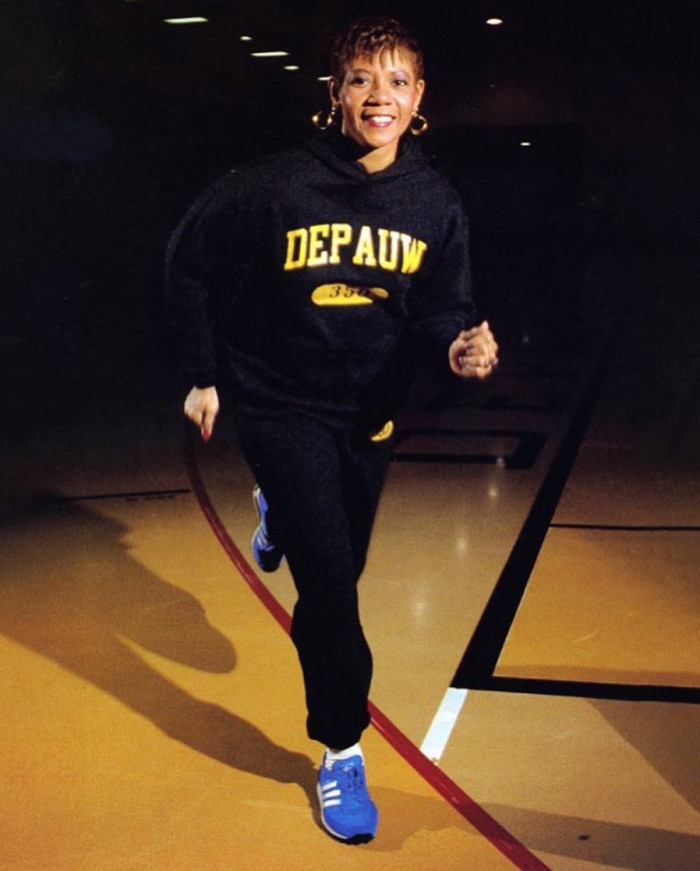For all the hurdles Wilma Rudolph cleared on her way to Olympic superstardom, none of them came on the track.
The 20th of 22 children in her Clarksville, Tennessee, family, Rudolph was born prematurely and faced a string of illnesses from a young age. Polio left her with a paralyzed leg and unable to walk but, because she was Black, Rudolph was denied care in her hometown. For years, she and her mother had to make weekly trips to Nashville for treatment.
Defying all odds, Rudolph made a full recovery – and then some. By age 9 she was walking without a leg brace. By high school she was an all-star on the basketball team. And at age 16, one year after legendary Tennessee State University track coach Ed Temple first spotted her flying across a court, Rudolph won bronze at the 1956 Olympics.
Four years later in Rome, Rudolph dominated in front of the first international television audience in Olympic history. She won gold in the 100-meter, 200-meter, and 4x100-meter races, becoming the first American woman to win three gold medals in a single Games.
Rudolph retired from competition in 1962, still the fastest woman in the world, but continued to use her renown for causes of equality. She helped open competitions to female and Black athletes and, back in Clarksville, her participation in protests led to the integration of the town’s public facilities and restaurants. She later founded the Wilma Rudolph Foundation in Indianapolis, a nonprofit that mentored young athletes from underserved areas.

Rudolph came to DePauw University in 1987 as director of the women's track program – her first collegiate coaching position – and as special consultant to the president on minority affairs. To Rudolph, her work at DePauw was an extension of what had become her life’s work.
“I have always believed that the most important aspect of my life is working with young people,” Rudolph said. “It’s been my dream to start programs that, through athletics, foster education.”
Vice President for Student Affairs Alan Hill ’81 crossed paths with Rudolph frequently during her time at DePauw. Then director of financial aid for the university, Hill said he had conversations with Rudolph about how to make DePauw education an affordable option for more families. Hill also was a volunteer track coach under Rudolph and said she pushed students to believe in their innate ability to accomplish great things.
“She always reminded DePauw athletes about how honored she was to have attended a small college in Tennessee State,” Hill said. “She took great pride in reminding our student athletes that they can compete and can have great success at every level.”
In 1994, having moved on to serve as vice president for Nashville’s Baptist Hospital, Rudolph’s life was cut short by cancer. She was laid to rest in Clarksville.
Browse other stories
-
Athletics
-
Men's Tennis - DePauw Men Sweep Wittenberg for Fifth Straight Win
-
Women's Track & Field - Katie Moore Finishes 7th in the Heptathlon at Gibson Invite
-
Women's Tennis - Tigers Women Blank Wittenberg
More Athletics
-
-
News
-
Greencastle Celebrates National Main Street Day with Small Business Breakfast, New Program Launch, and Spring Pitch Competition
-
Hirotsugu "Chuck" Iikubo ’57 remembered as thoughtful leader, advocate for international goodwill
-
DePauw mourns Janet Prindle Seidler ’58, founder of The Prindle Institute for Ethics
More News
-
-
People & Profiles
-
11 alums make list of influential Hoosiers
-
DePauw welcomes Dr. Manal Shalaby as Fulbright Scholar-in-Residence
-
DePauw Names New Vice President for Communications and Strategy and Chief of Staff
More People & Profiles
-
-
Have a story idea?
Whether we are writing about the intellectual challenge of our classrooms, a campus life that builds leadership, incredible faculty achievements or the seemingly endless stories of alumni success, we think DePauw has some fun stories to tell.
-
Communications & Marketing
101 E. Seminary St.
Greencastle, IN, 46135-0037
communicate@depauw.eduNews and Media
-
News media: For help with a story, contact:
Bob Weaver, Senior Director of Communications.
bobweaver@depauw.edu.